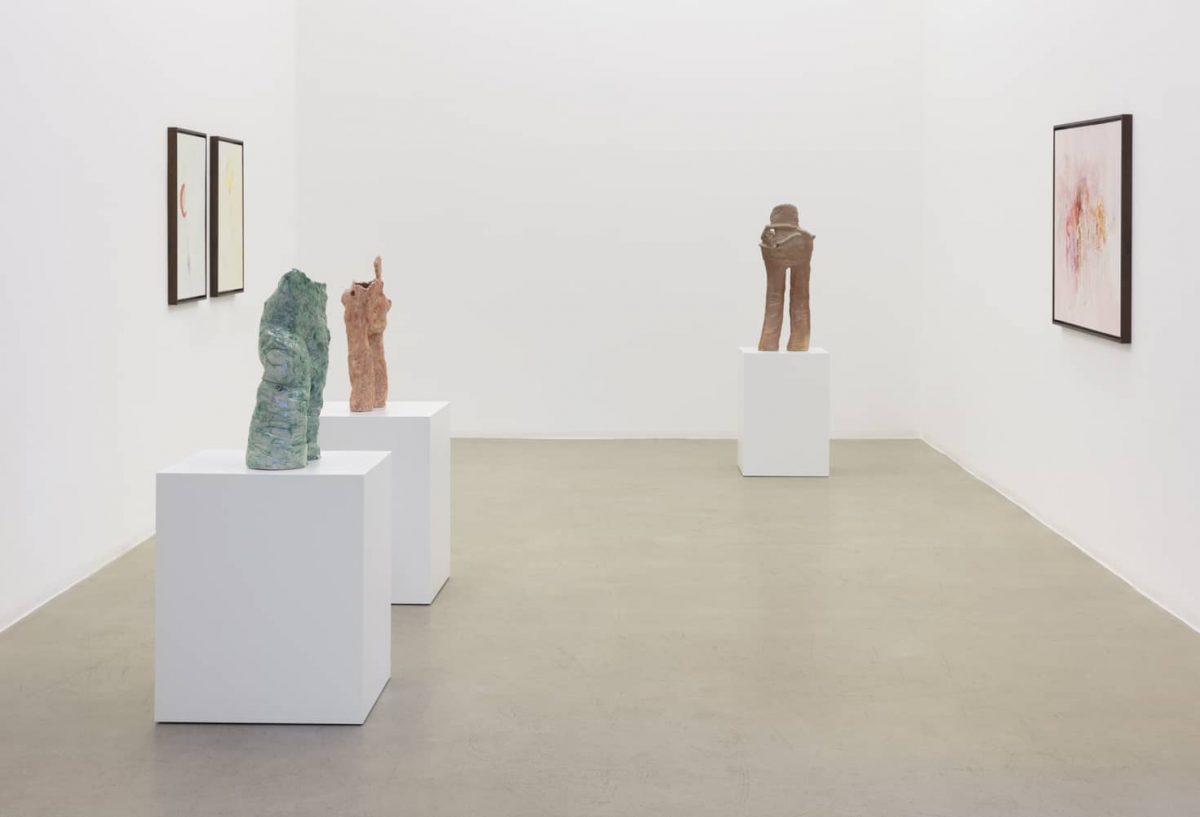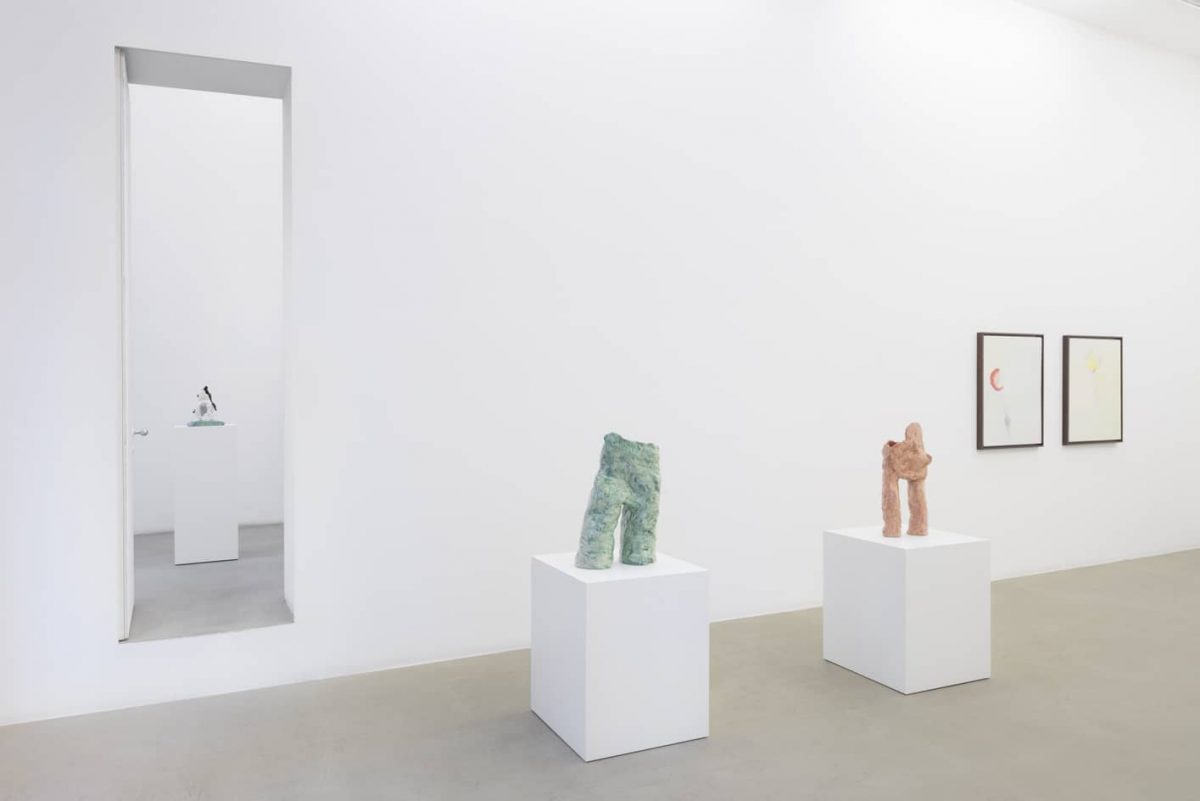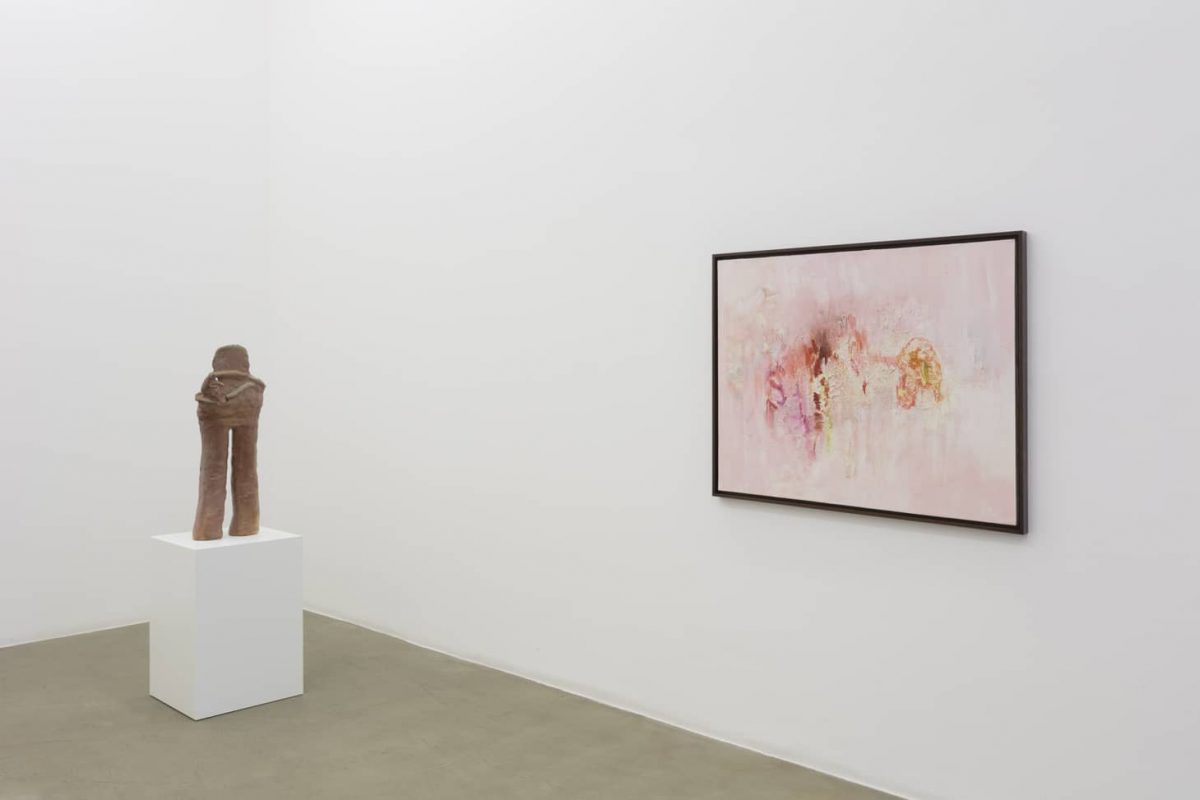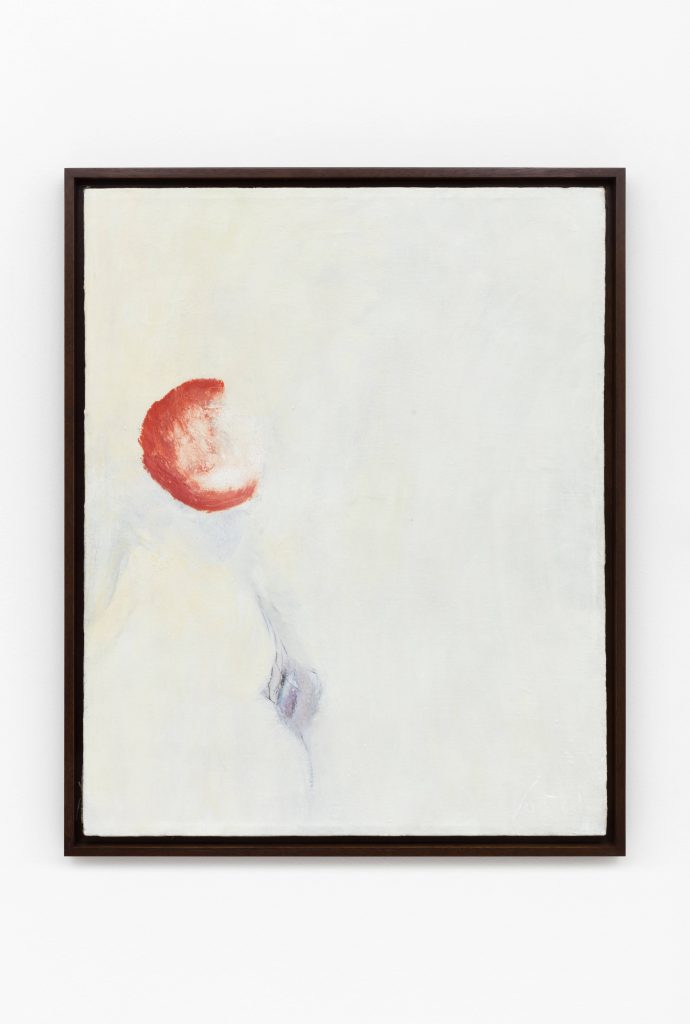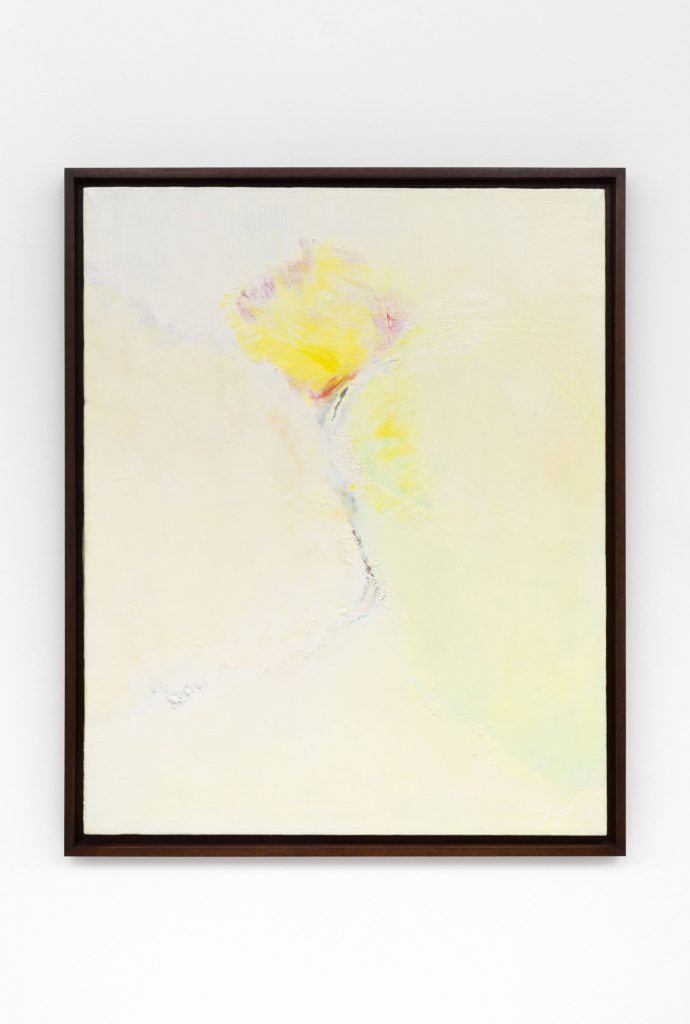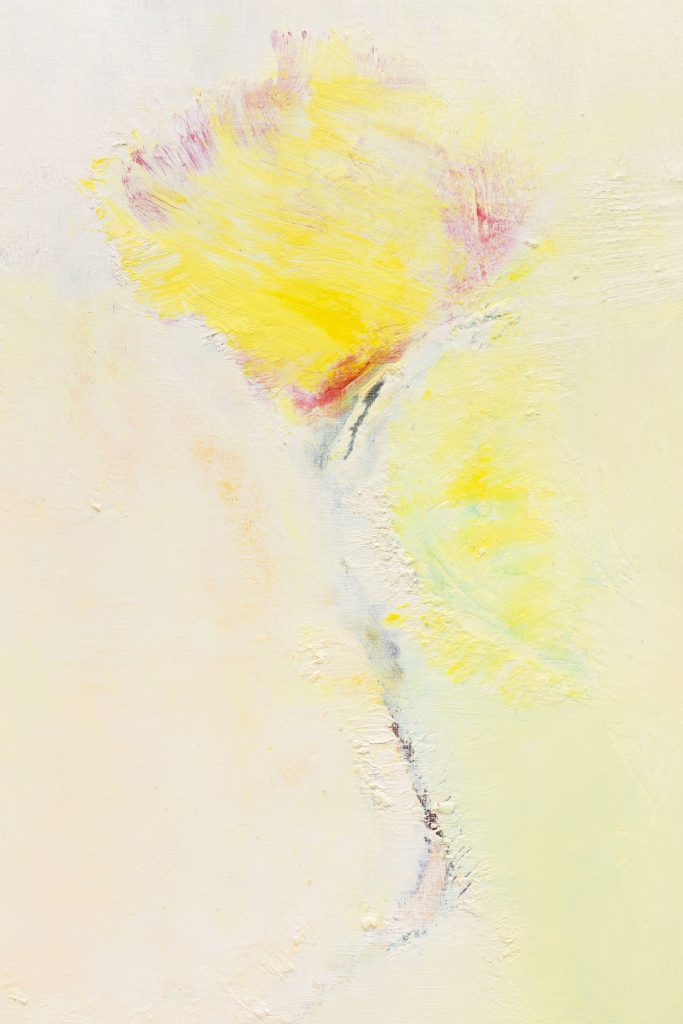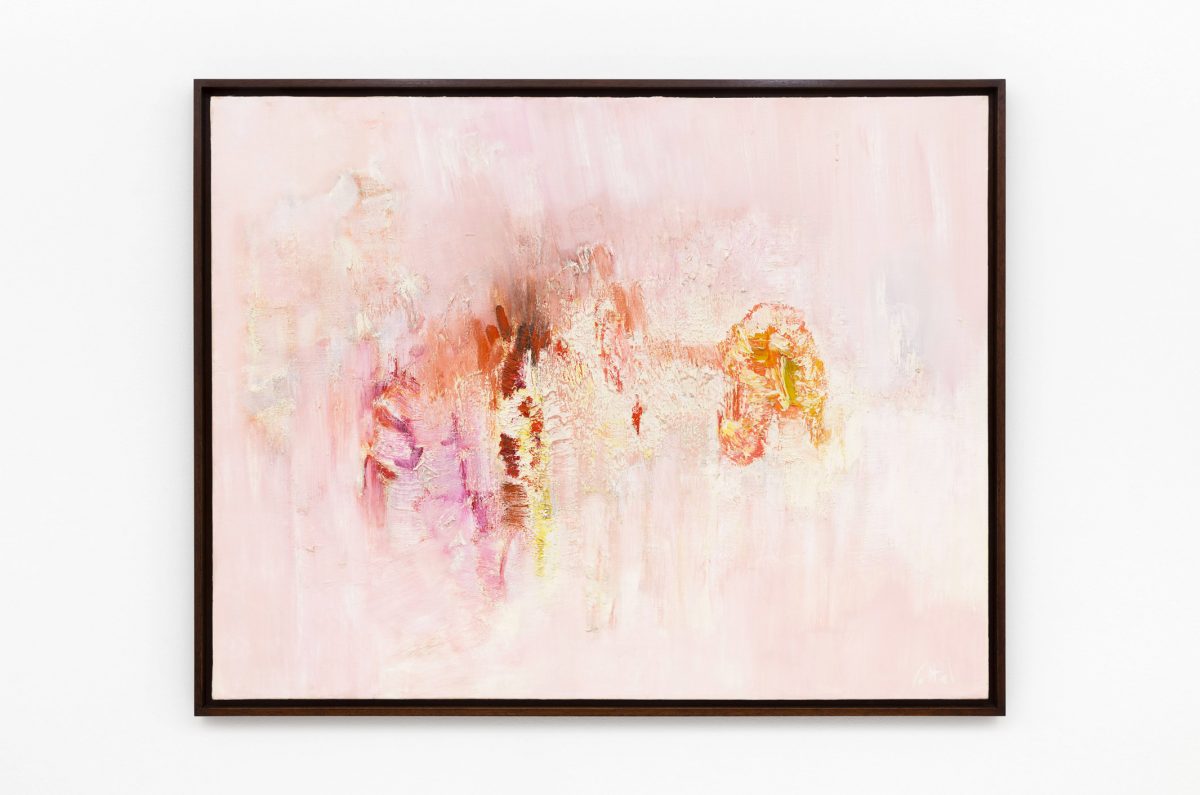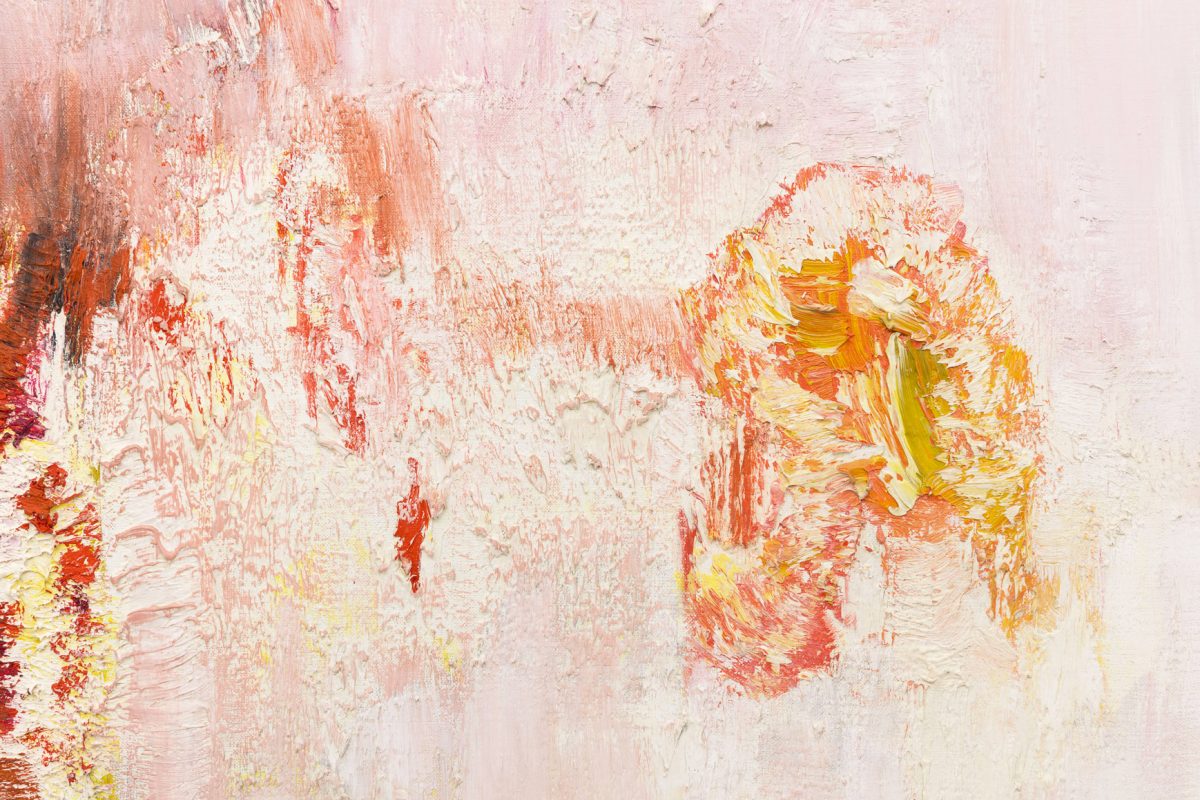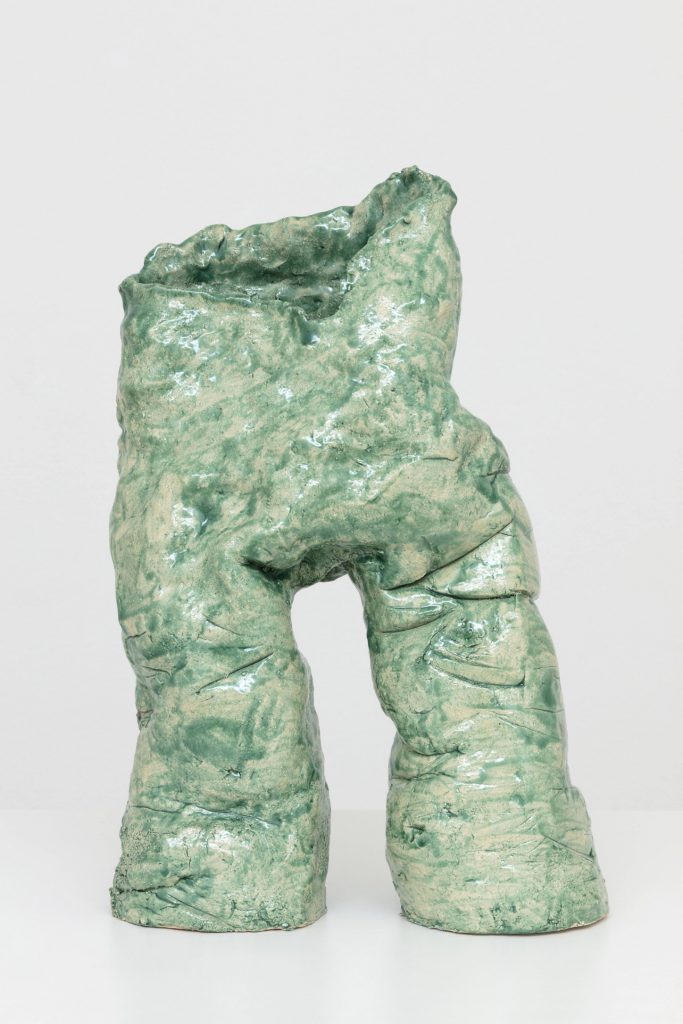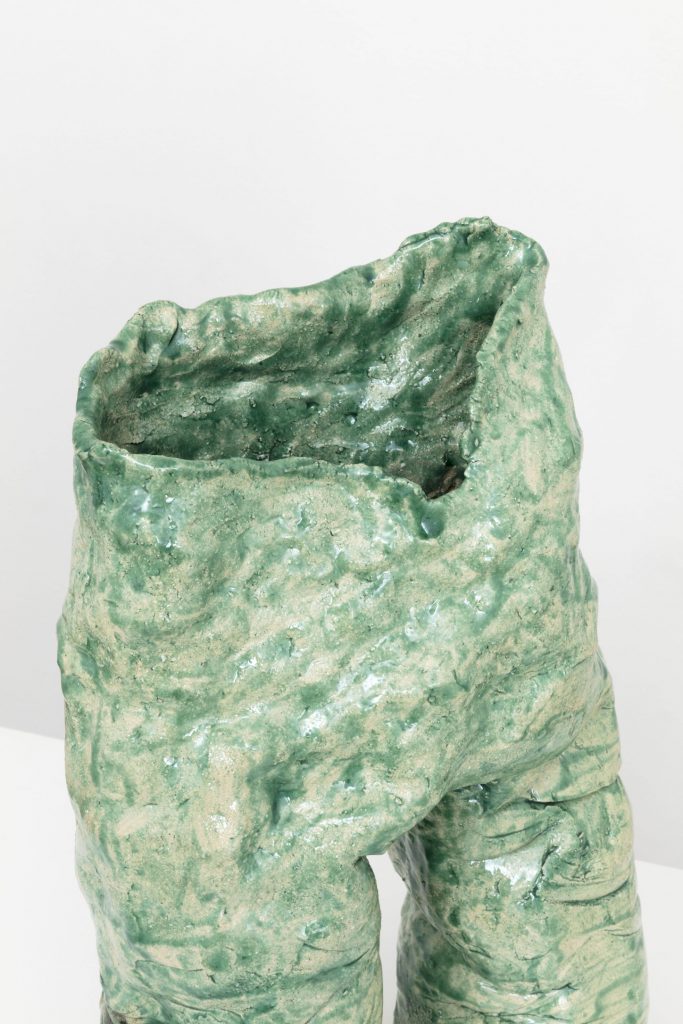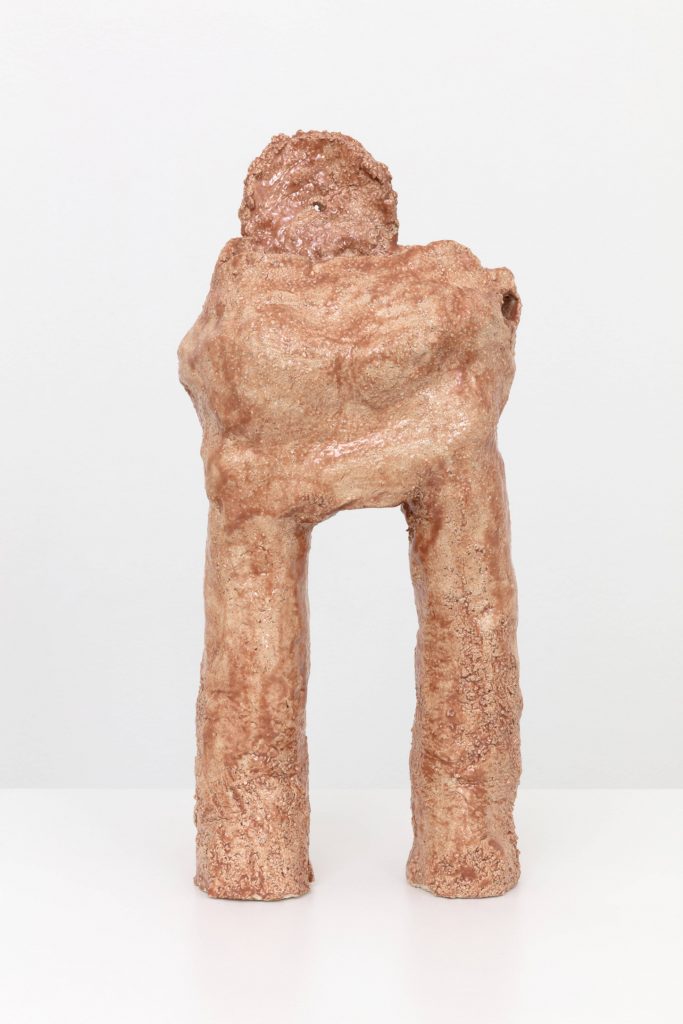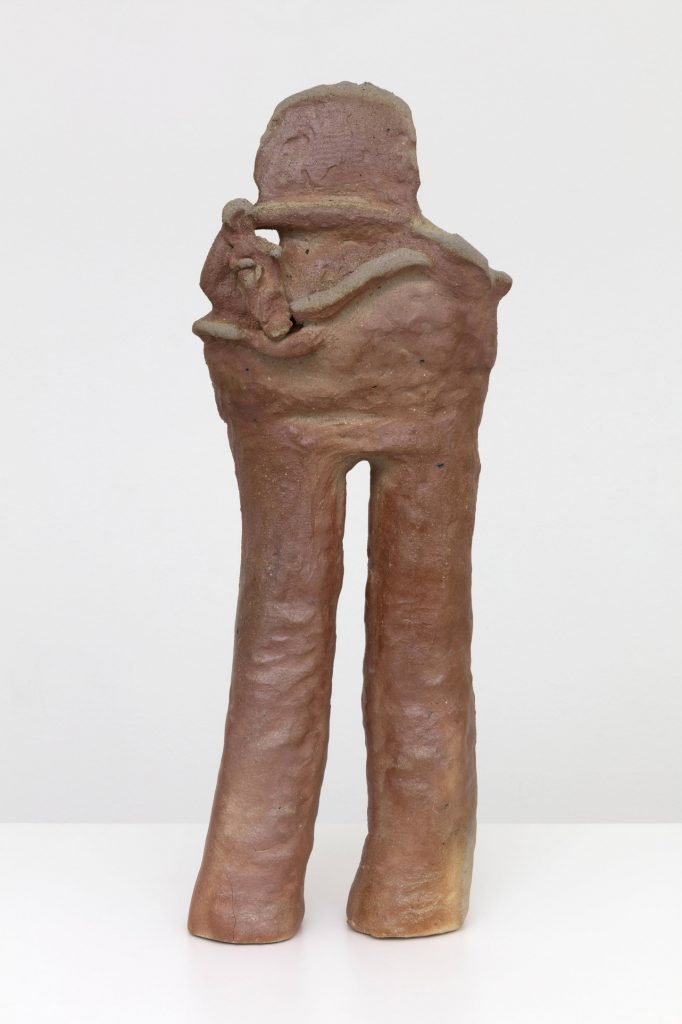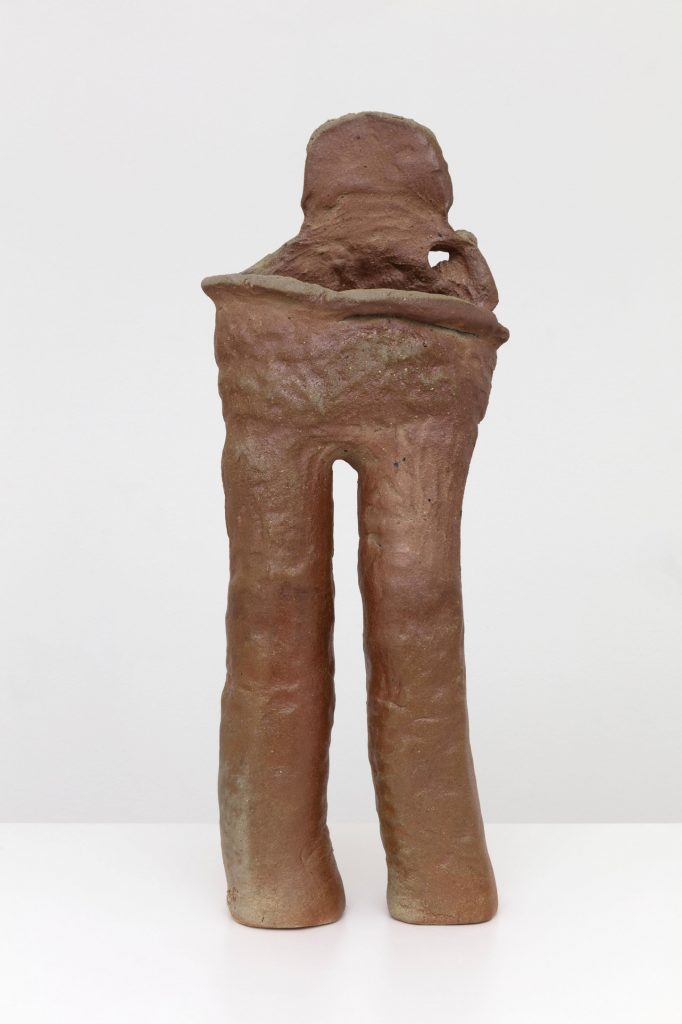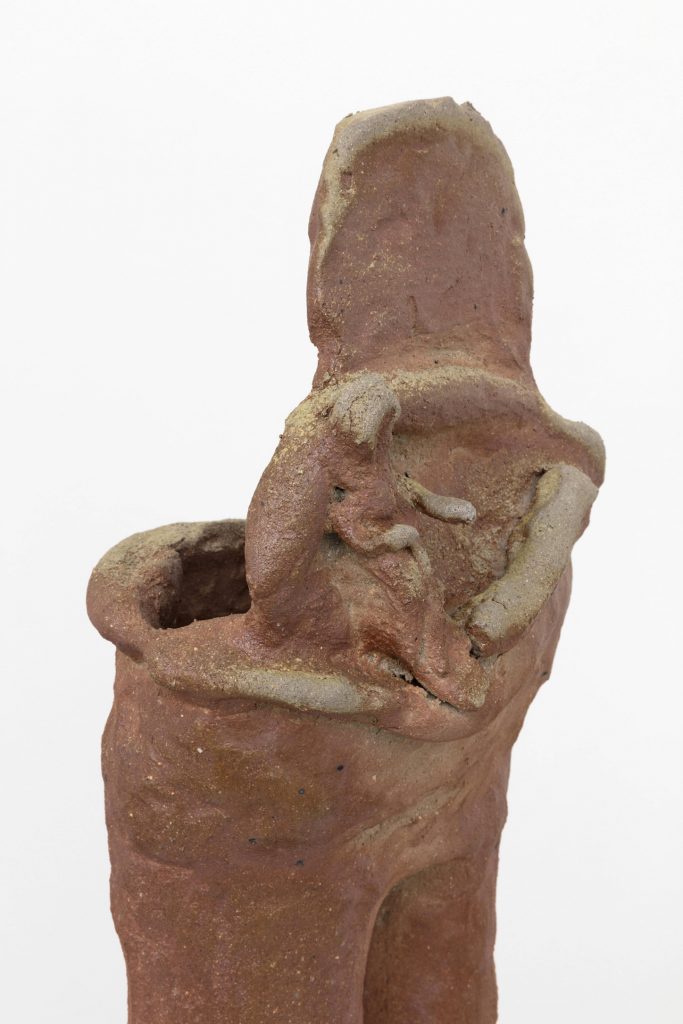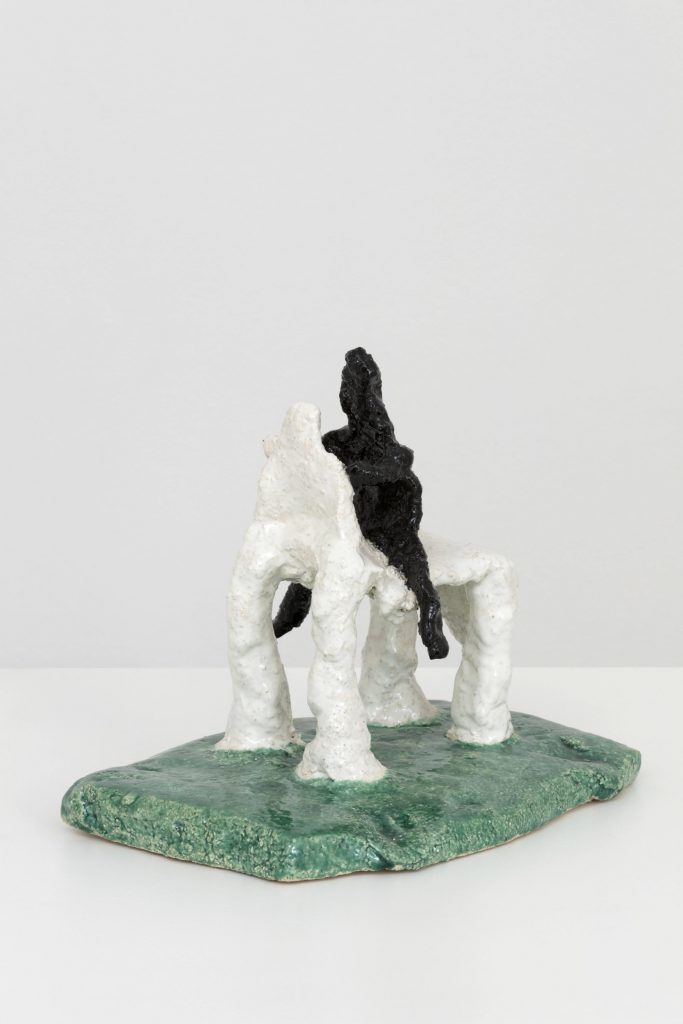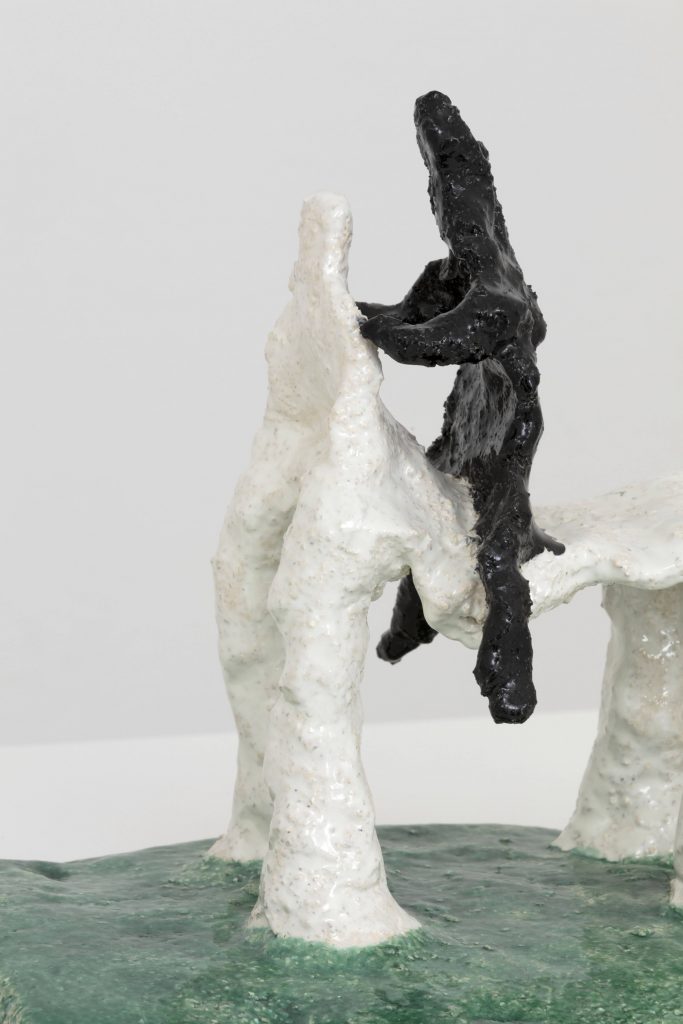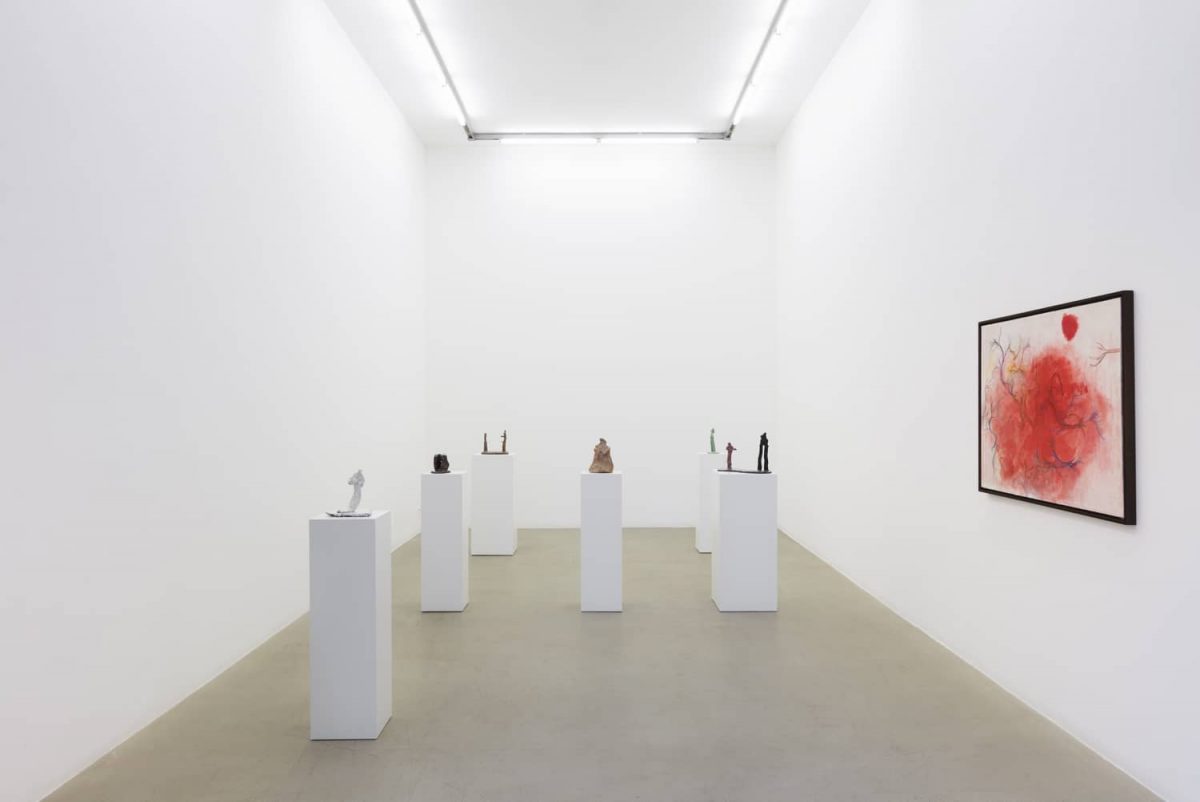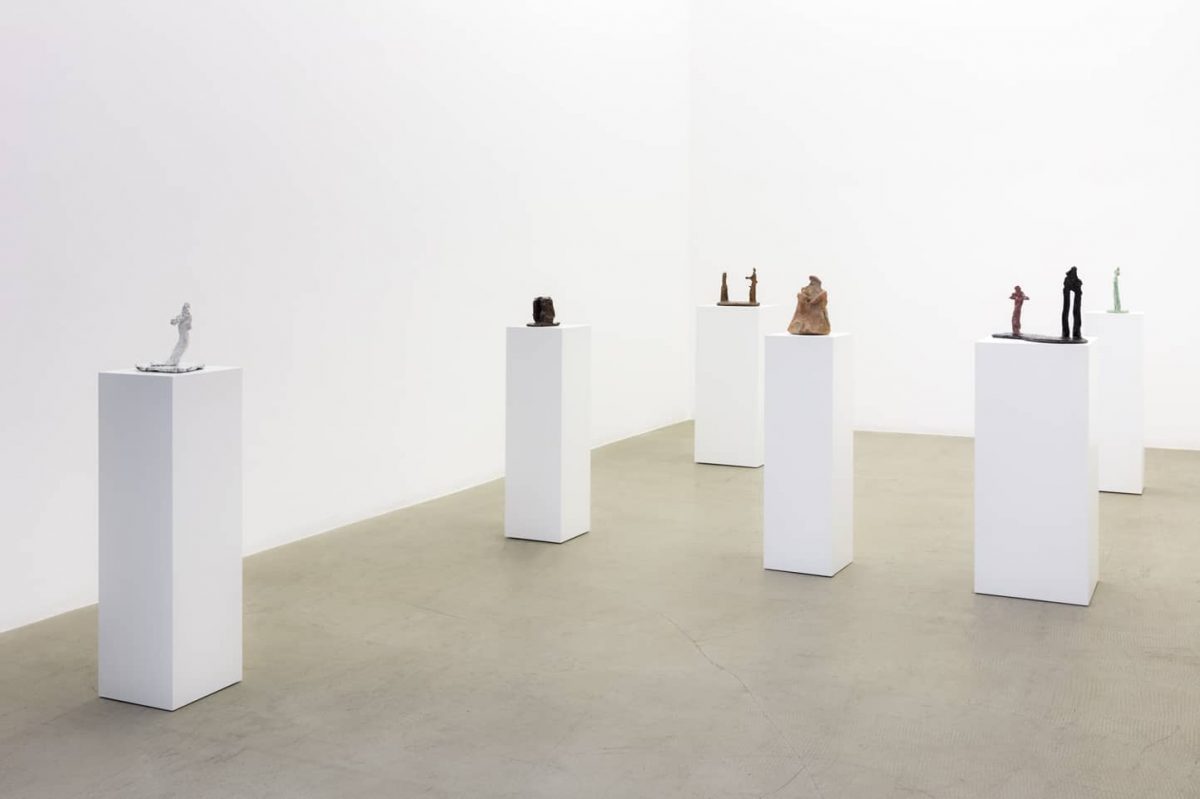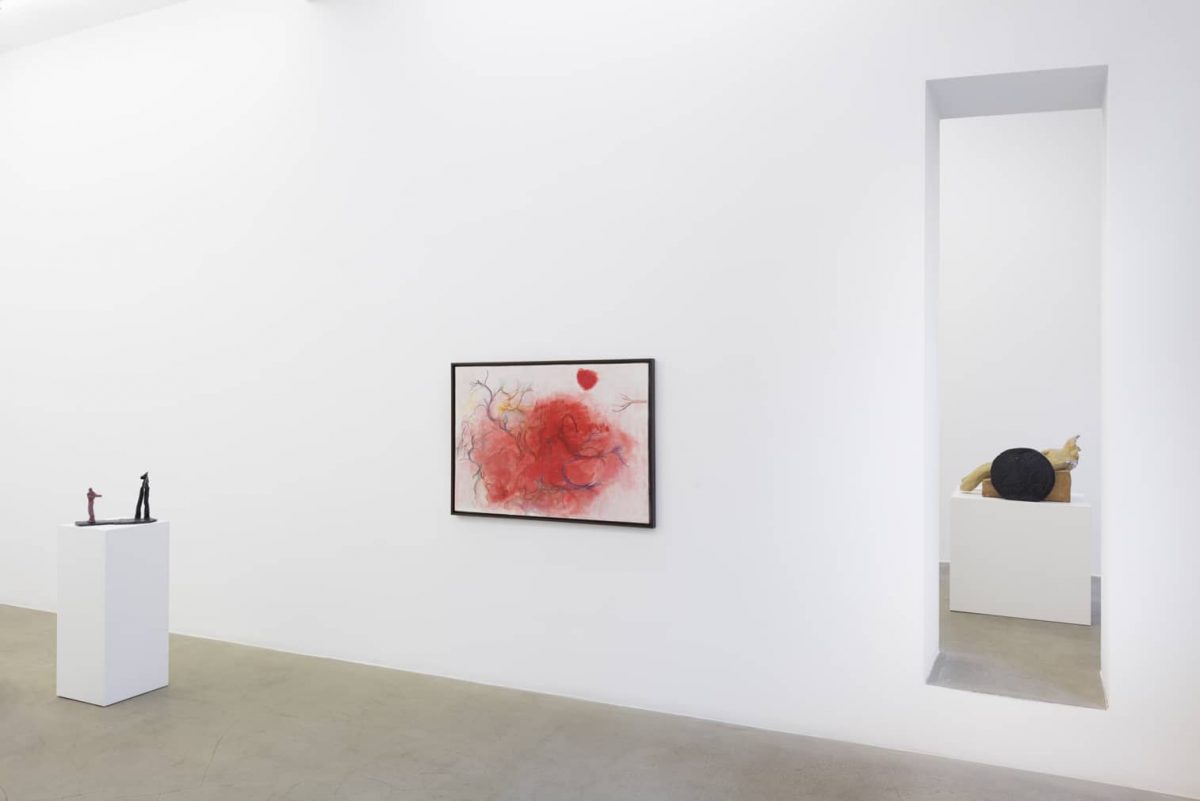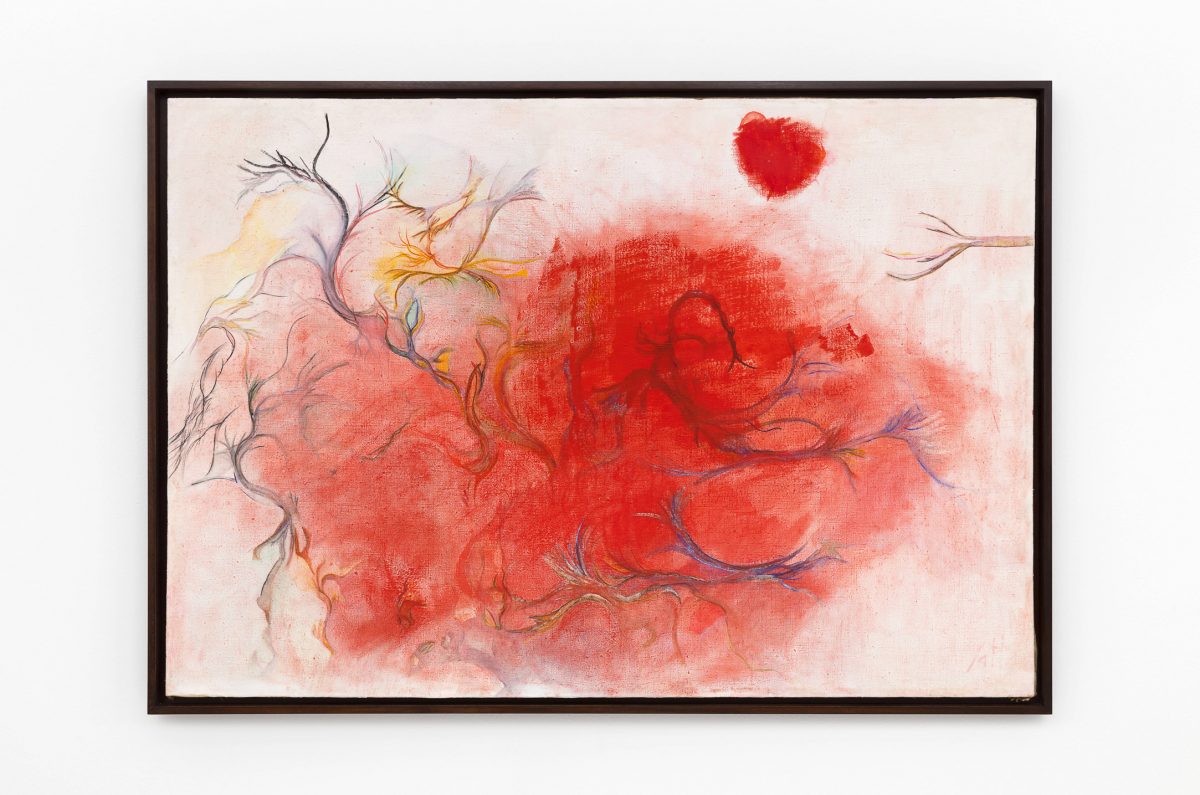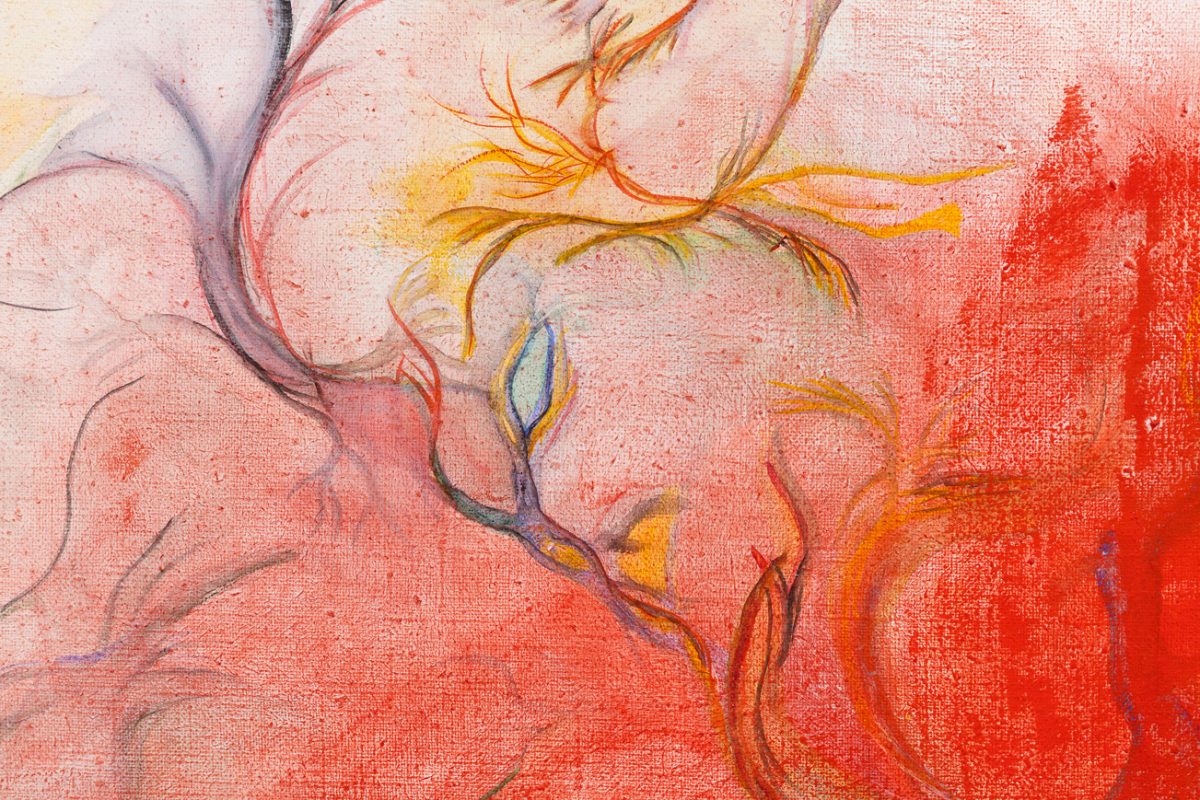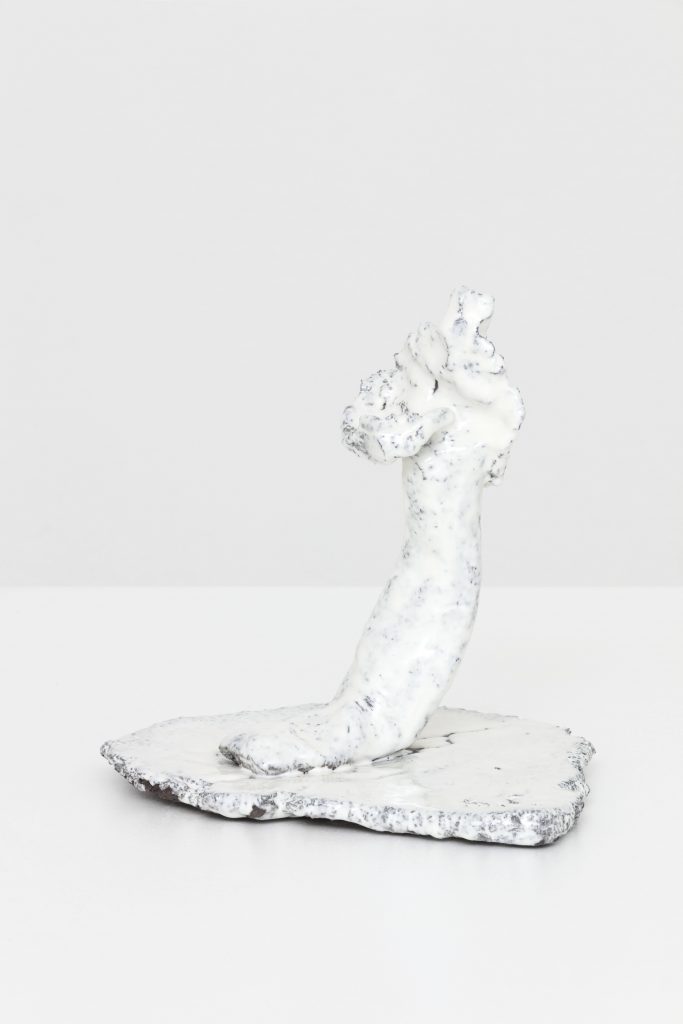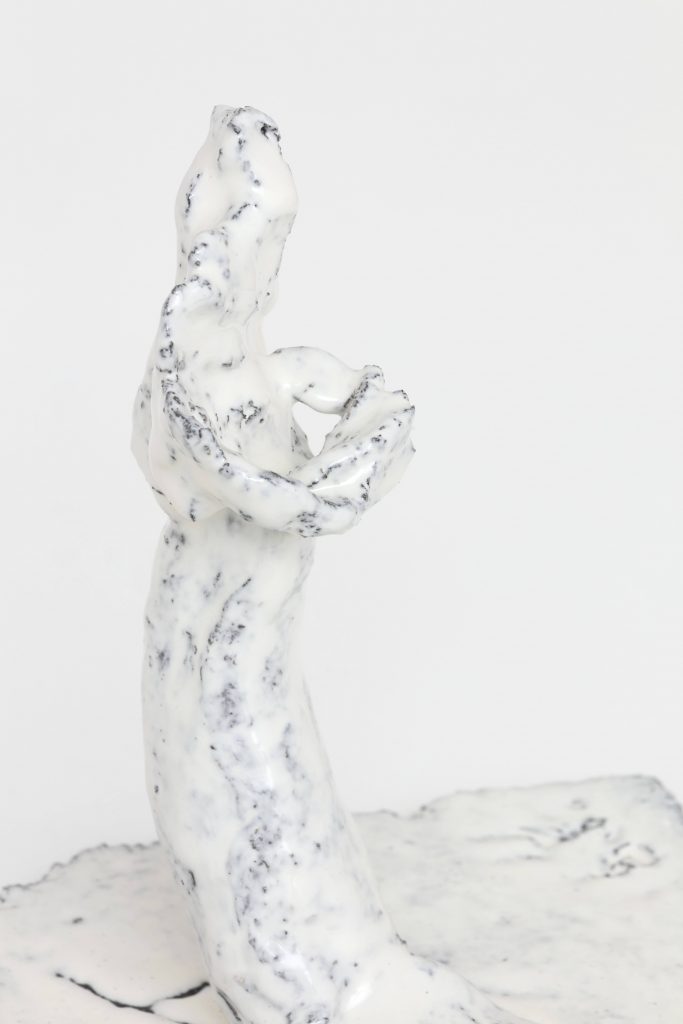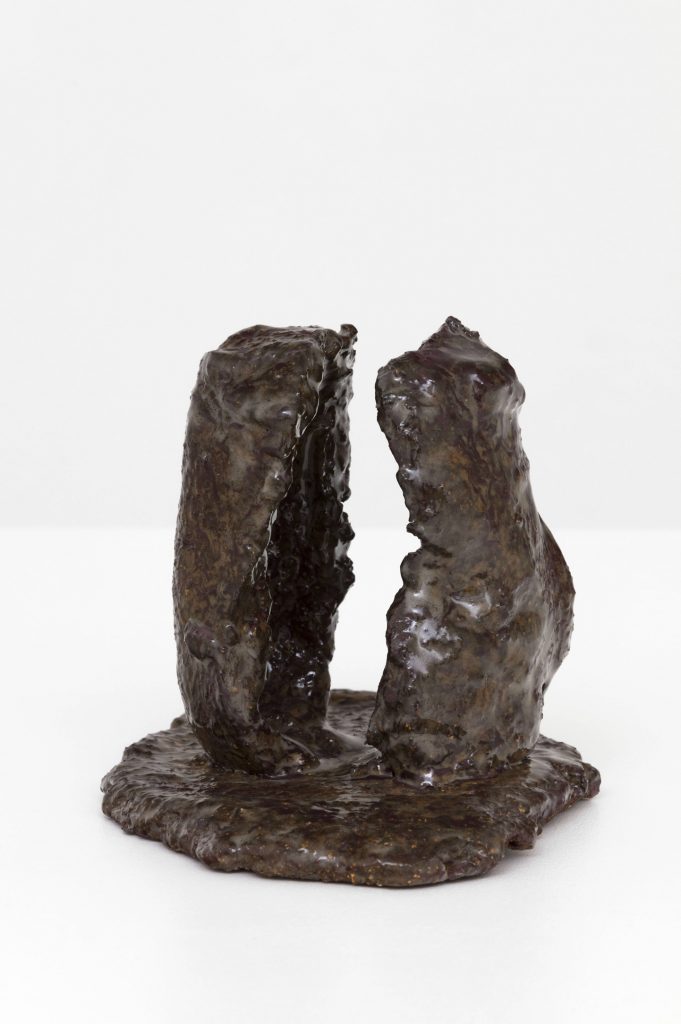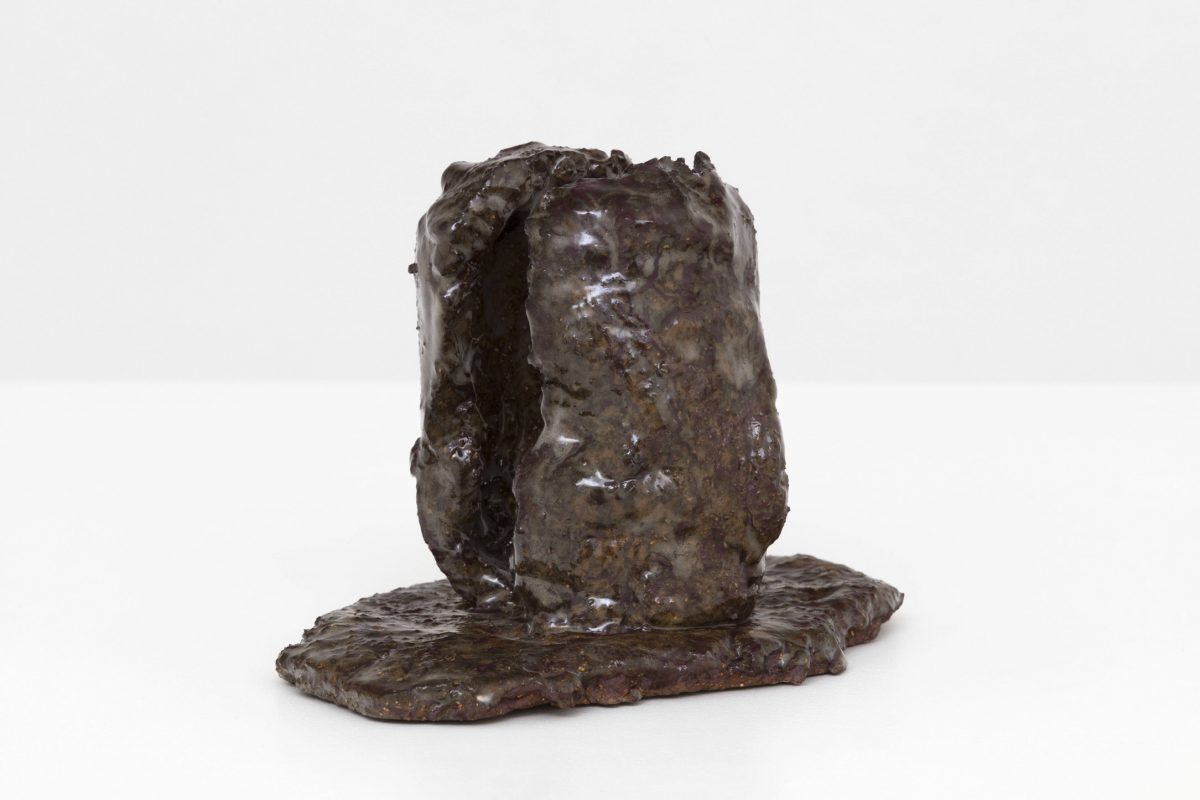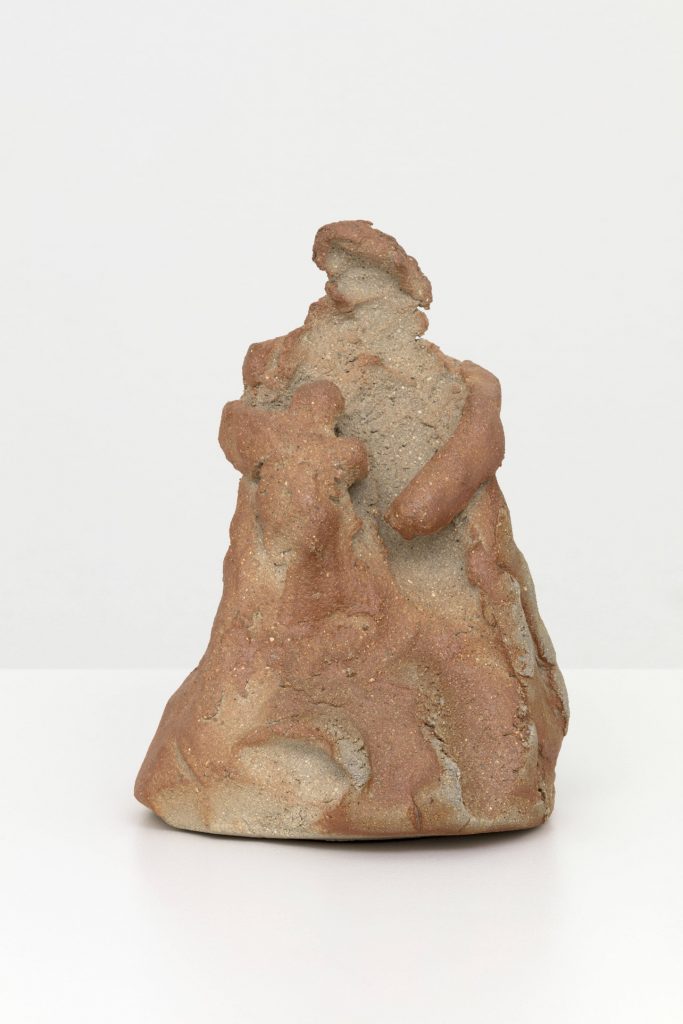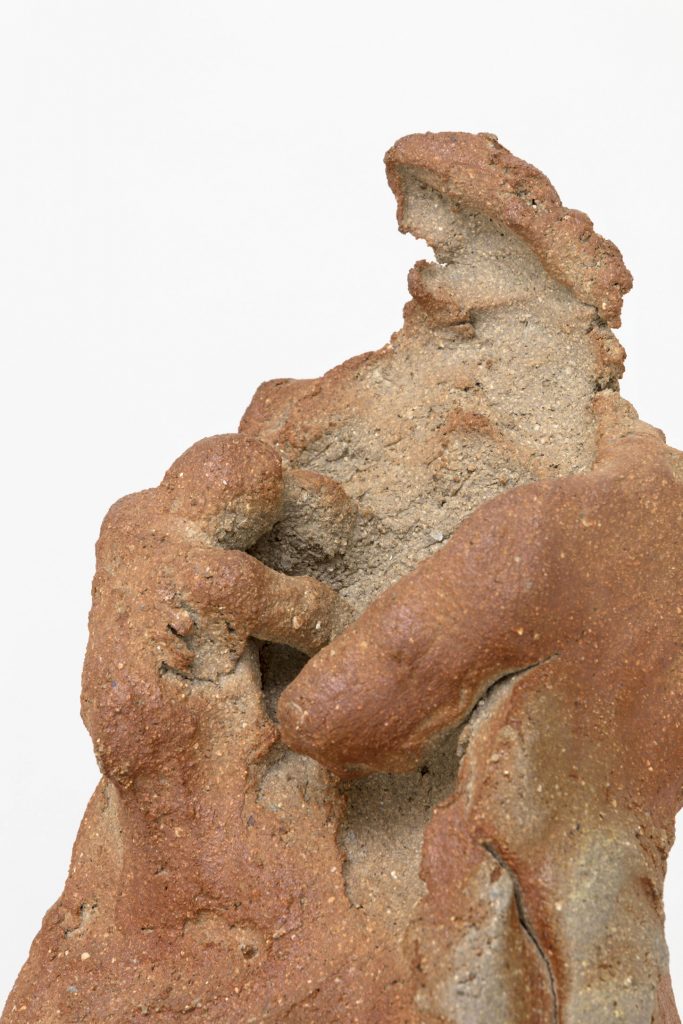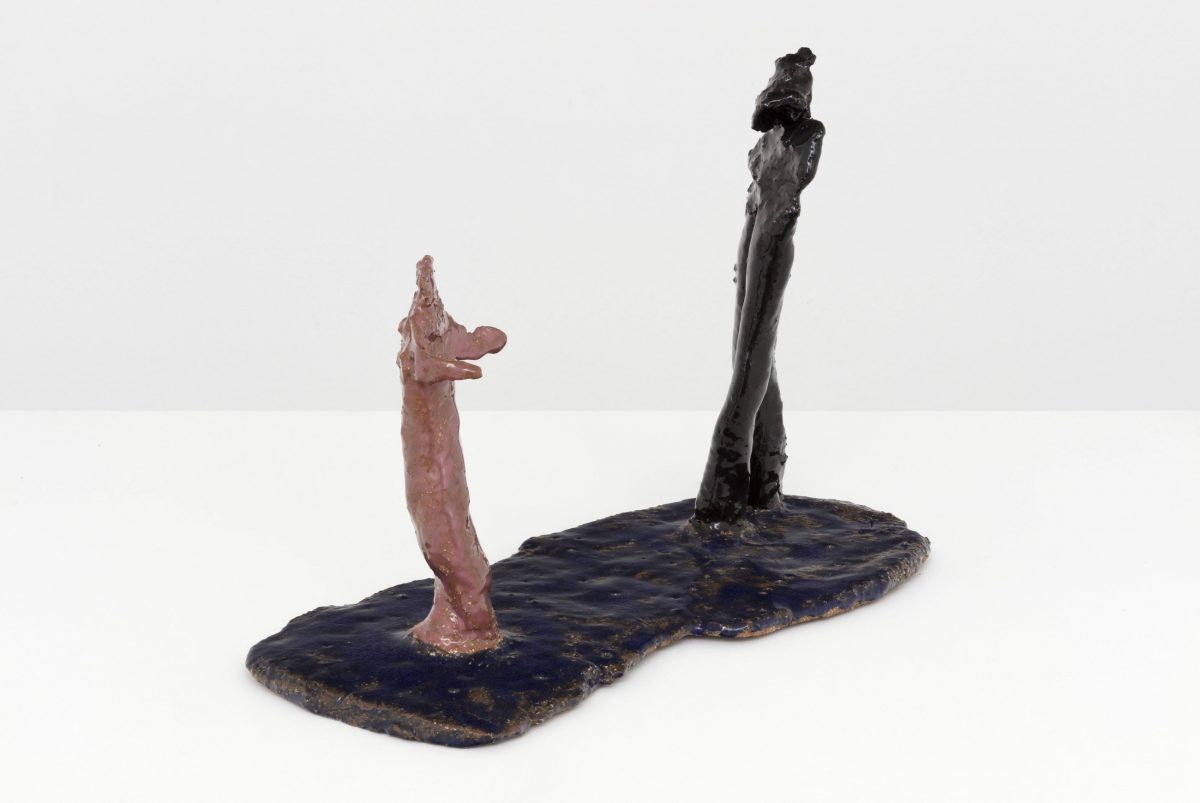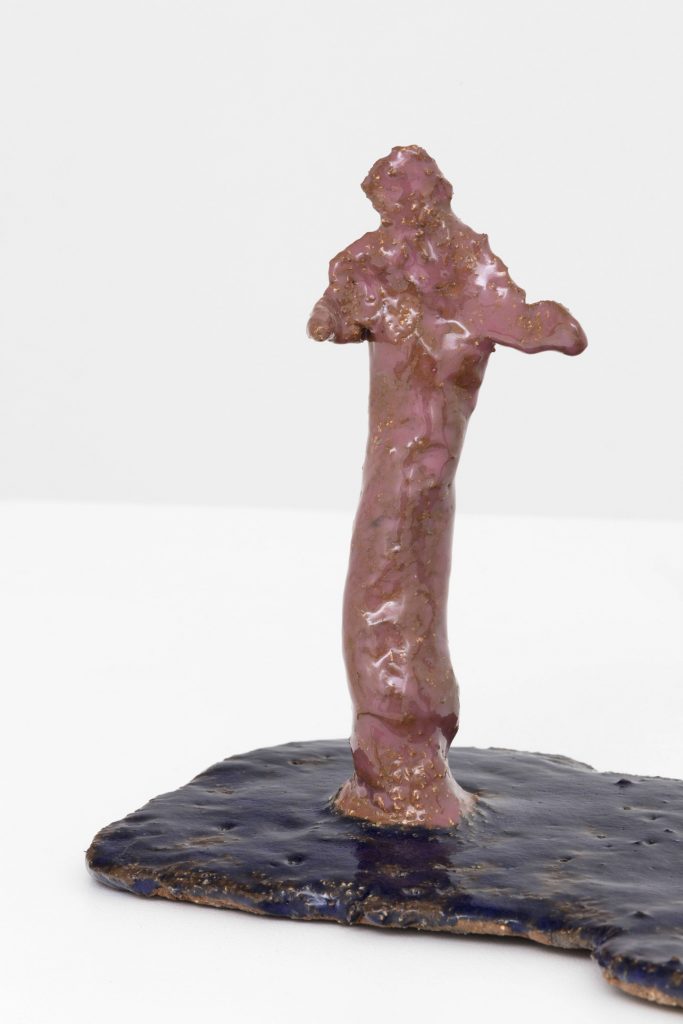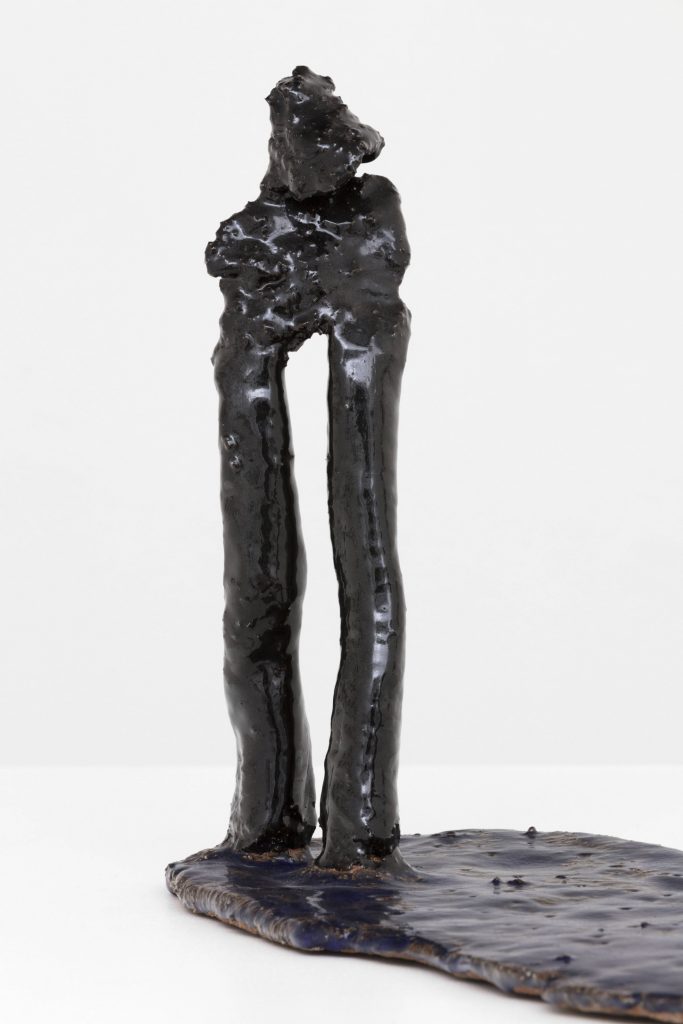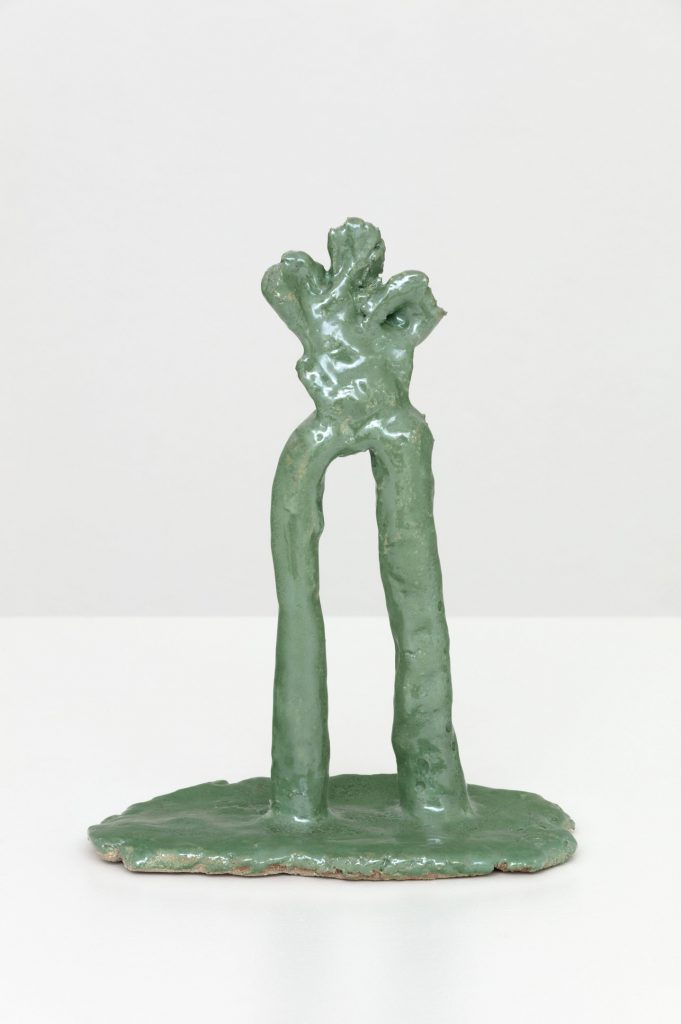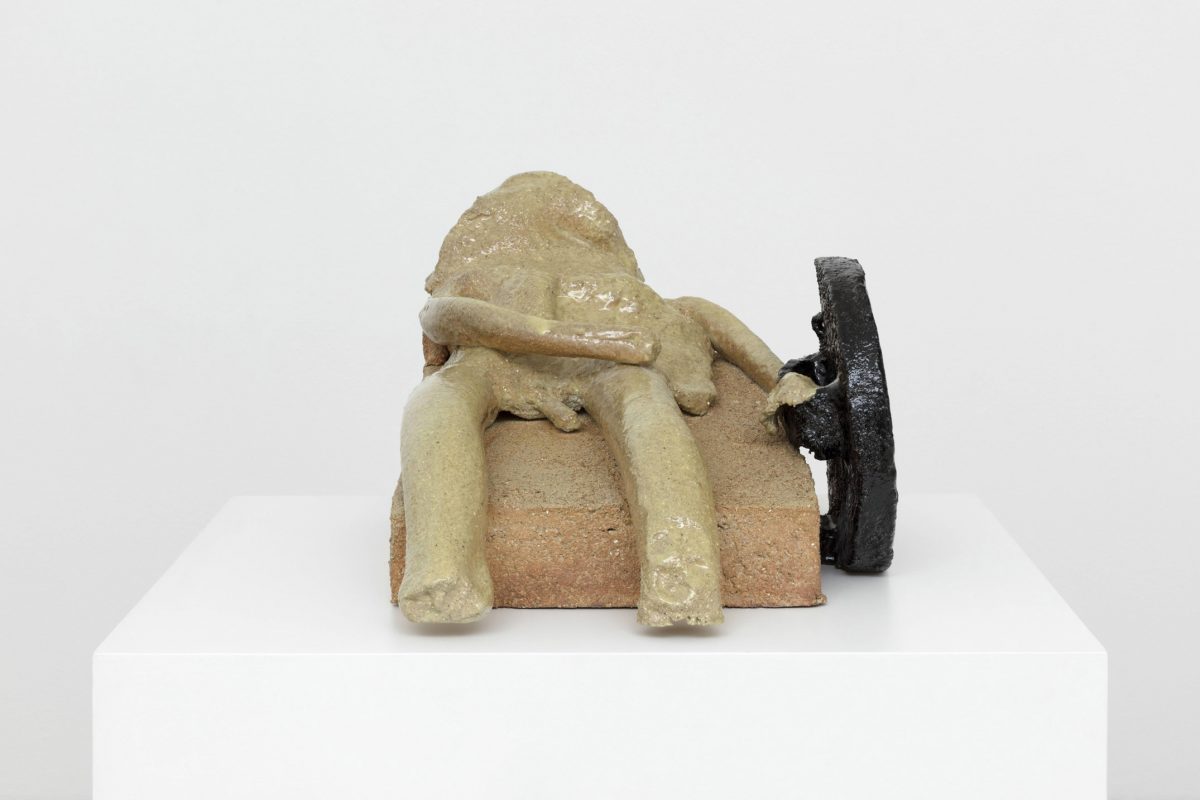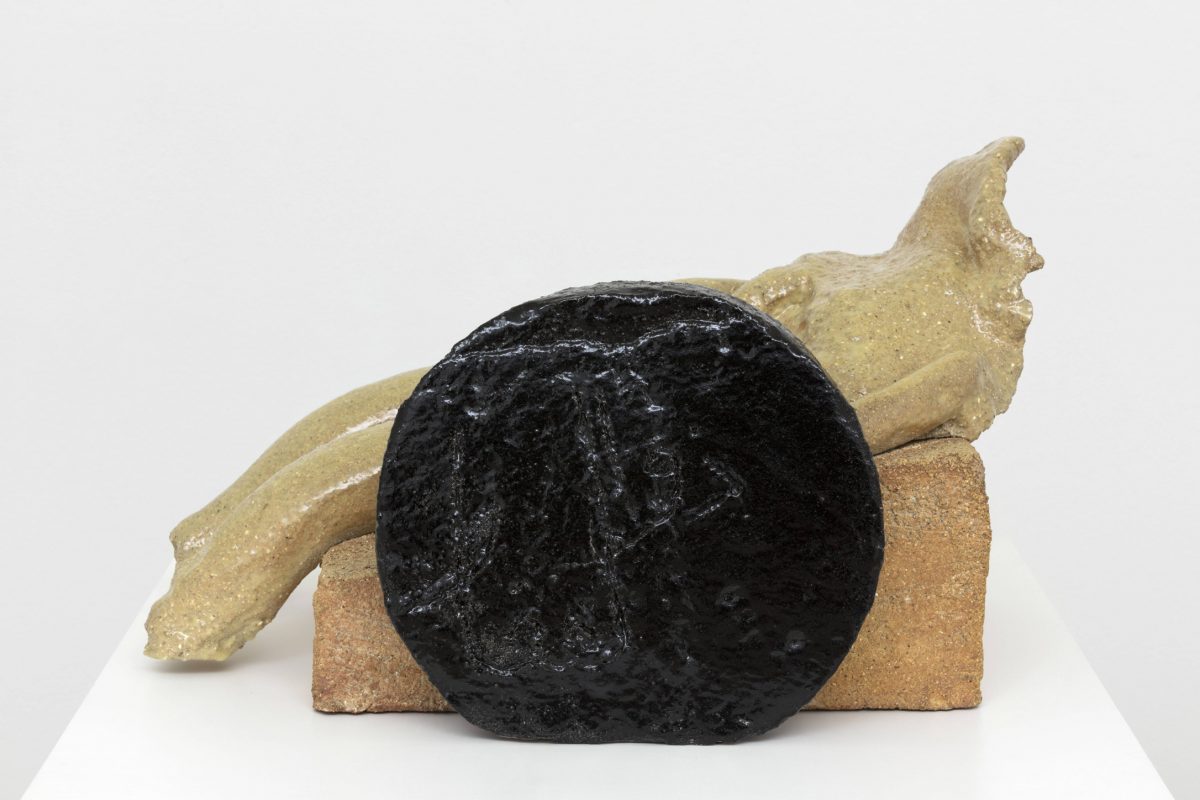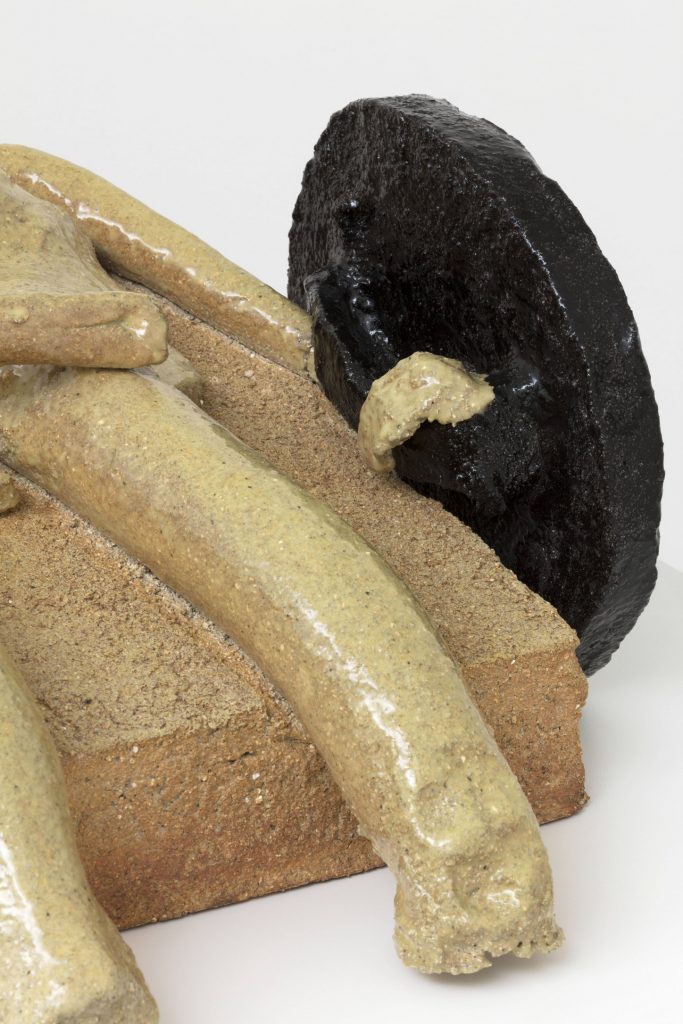
- This event has passed.
kaufmann repetto is pleased to present Demeter and Dionysus, the third solo exhibition by Simone Fattal with the gallery.
The need to act on matter is a behavioral trait shared by man and the tiny squid that produces corals, along with the sea and its incessant movement, raging against the face of the cliff as it erodes.
In the glistening Mediterranean, where for millennia “we have lived like ants or frogs around a pond”, the friction between the passing ships sailing across its waves, and the crisscross of routes and exchanges have led to some of the earliest spikes in temperature, the first encrustations due to human activities – Anthropocene.
The historical and geographical basin from which Simone Fattal’s work spreads out is this: a place which by virtue of its early civilization developed awareness of the inventive and nourishing power of fragments of the past, of the —partially liberating— destiny of every historical narrative, becoming ruin.
After training in philosophy between Beirut and Paris, Simone Fattal decided to to abandon her work as a painter in 1979, in the wake of the growing political tensions in Lebanon. She eventually finds shelter in California, where in 1982 she founded The Post-Apollo Press (a name inspired by the adventurous spirit ushered in by the Apollo space program), publishing and distributing experimental titles of prose and poetry by authors such as Etel Adnan, Marguerite Duras, Jalal Toufic, Barbara Guest, Lyn Hejinian, and Leslie Scalapino.
In 1988, she returned to the artistic practice, focusing this time on sculpture of a figurative nature, yet like her painterly practice, a figuration tending towards abstraction. It is during this time that she creates a body of work drawing on figures featured throughout the history of the Mediterranean: a cosmogony of standing bodies and resistant architectures.
In her first sculpture Torso Found in Today’s Downtown Beirut, 1988, the repositioning of a “shred” of bombed Lebanese landscape, here sculpted in alabaster, becomes a place where the history of an entire geographical area and the splendor of a virile torso collapse: the estheticizing result of a persistent crafting of the body/matter.
In this exhibition, the various temporal and geographic scales of Fattal’s work collapse: the paintings from the ‘70s made in Beirut are presented in a juxtaposition alongside the results of recent sculptural research carried out through 2019 in the studios of the Fondation Artigas in Barcelona —a place rich with the modernist and industrial history of one of the capitals of the Mediterranean — of the same substrate that nourished the works of several of the key figures of European modernism, like Mirò and Picasso.
Simone Fattal was born in Damascus, Syria and grew up in Lebanon. Her work is part of the exhibition Luogo e Segni, curated by Martin Bethenod and Mouna Mekouar, at Punta della Dogana—Fondation Pinault, Venice. In 2019 MoMA PS1 dedicated to her Works and Days, a monographic exhibition curated by Ruba Katrib and Josephine Graf; in the same year she participated to exhibitions held at Mudam Luxembourg – Musée d’Art Moderne Grand-Duc Jean and the Archaelogical Museum of Mykonos, Mykonos.
In October Fattal will open her upcoming museum exhibition at Lille métropole Musée d’Art Moderne.
kaufmann repetto è lieta di presentare Demeter and Dionysus, la terza mostra personale di Simone Fattal con la galleria.
La necessità di agire sulla materia è un tratto comportamentale che accomuna l’uomo al piccolo polipo che costruisce il corallo, al mare e al suo moto che s’infrange contro la scogliera e la erode.
Nello scintillante Mediterraneo, dove da millenni “abitiamo come formiche o rane intorno a uno stagno”, l’attrito tra le navi che ne solcano i mari, l’incrocio di rotte e di scambi hanno indotto da tempo ai primi picchi nella temperatura ambientale, alle prime incrostazioni dell’attività umana sulla terra, all’Antropocene.
Simone Fattal radica la sua ricerca in questo bacino, storico e geografico, che a ragione della sua precoce civilizzazione ha sviluppato coscienza del potere inventivo e nutritivo dei frammenti del passato, e del destino – parzialmente liberatorio – di ogni narrazione storica, diventare rovina.
Formata in filosofia tra Beirut e Parigi, nel 1979 Simone Fattal abbandona la sua pratica di pittrice come risultato delle crescenti tensioni politiche in Libano. Trova progressivamente riparo in California, dove nel 1982 si dedica alla creazione della casa editrice The Post-Apollo Press – nome ispirato allo spirito d’avventura che accompagnava il programma spaziale Apollo –, con la quale pubblica e distribuisce titoli sperimentali di poesia e prosa di autori come Etel Adnan, Marguerite Duras, Jalal Toufic, Barbara Guest, Lyn Hejinian e Leslie Scalapino.
Nel 1988 si riapproria dello spazio offerto dalla pratica artistica, dedicandosi a una scultura di natura figurativa memore della sua pratica pittorica, sempre tendente all’astrazione. Da li in poi crea un corpo di opere fatto dei personaggi che costellano la storia del suo Mediterraneo, una cosmogonia di figure erette e architetture che resistono al tempo.
La sua prima scultura, Torso Found in Today’s Downtown Beirut, 1988, il riposizionamento di un “lembo” di paesaggio del Libano bombardato, scolpito in alabastro, diventa il luogo nel quale si ricongiungono la storia di un’intera area geografica e lo splendore di un torso virile, il risultato estetizzante di un insistente lavoro sul corpomateria.
Nella mostra di Milano sono ricongiunte in egual modo differenti scale temporali e geografiche dell’opera di Fattal: i quadri realizzati nella Beirut degli anni ‘70, giustapposta ai risultati di una ricerca scultorea portata avanti per tutto il 2019, nei laboratori della Fondazione Artigas di Barcellona, un luogo impregnato di storia industriale mediterranea del ventesimo secolo e dello stesso sostrato che diede nutrimento all’opera di alcune delle maggiori figure del modernismo europeo come Mirò e Picasso.
Simone Fattal è nata a Damasco, Siria ed è cresciuta in Libano. Il suo lavoro è parte della mostra collettiva Luogo e Segni, curata da Martin Bethenod e Mouna Mekouar a Punta della Dogana—Fondation Pinault, Venezia. Nel 2019 il MoMA PS1 le ha dedicato una mostra antologica Works and Days, curata da Ruba Katrib e Josephine Graf; nello stesso anno ha partecipato a mostre al Mudam Luxembourg – Musée d’Art Moderne Grand-Duc Jean e all’Archaelogical Museum of Mykonos, Mykonos. In ottobre Fattal terrà la sua prossima mostra in un’istituzione museale, al Lille métropole Musée d’Art Moderne.

